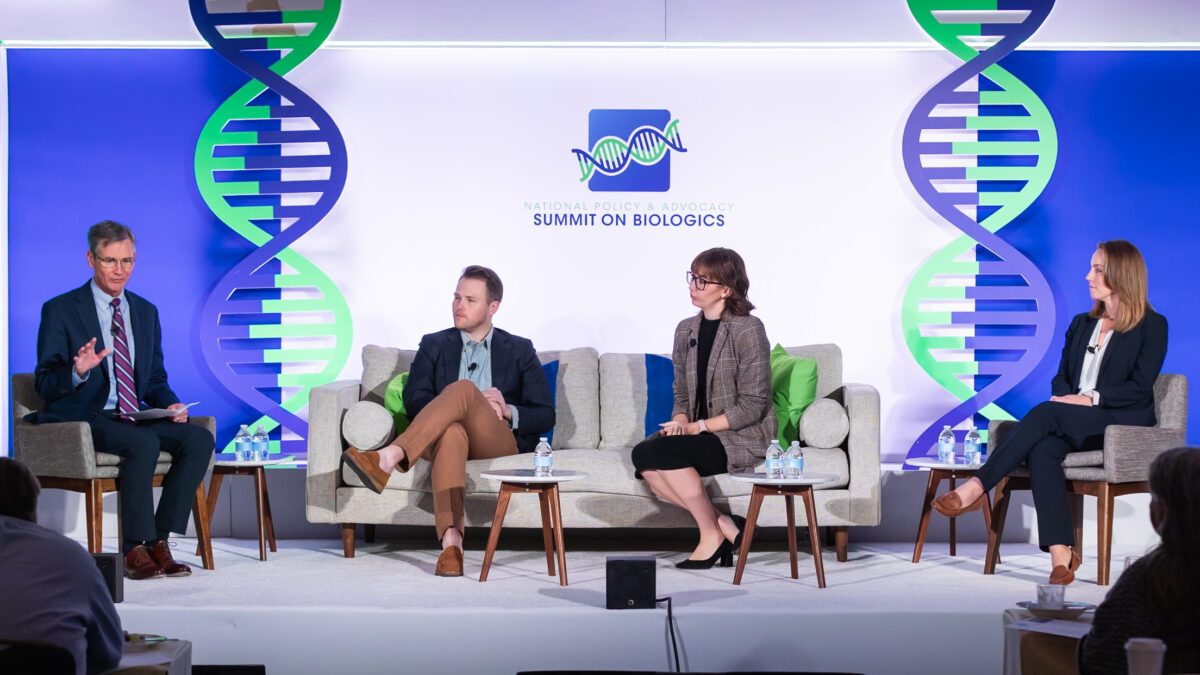Can health policy keep up with the rapidly expanding field of biological medicine?
Health care advocates, patients and providers gathered on November 2 in Washington, D.C. to discuss both recent advances in patient access and persistent barriers to timely, tailored care.
If you missed the eighth annual National Policy & Advocacy Summit on Biologics, here’s a summary in five quotes.
- “Innovations like biologics and telehealth have made it so much easier for Americans to access health care.”
U.S. Representative Carol Miller from West Virginia opened the summit by discussing innovative advances that improve patient care. Some communities, such as populations in rural areas, don’t have enough access to care. But good policies can put patients first by reducing these barriers and opening the door for innovative treatments that are accessible and affordable. The congresswoman shared policy reforms that she has championed at the state and federal level.
- “My goal is to get people on the right drug as quickly as possible, and also increasingly to try and prevent financial toxicity.”
Biosimilars and interchangeable biosimilars have increased affordability and improved access, explained Angus Worthing, MD, formerly of the American College of Rheumatology’s board of directors. Affordability is something health care providers must think about when treating their patients, Dr. Worthing explained. Having access to the right treatment that doesn’t inflict financial hardship can drastically improve a patient’s adherence and allows providers to foster a trusting patient-provider relationship.
- “…They see these programs as a ‘free drug’ program rather than the safety net programs that they’re intended to be.”
Ashira Vantrees, a staff attorney from Aimed Alliance, discussed the emergence of alternative funding programs. With these programs, insured patients are diverted by third-party vendors to use charitable assistance programs, instead of their health plan, to obtain certain prescribed medications. The programs create delays in care by requiring insured patients to jump through additional hoops to get their medication. Meanwhile, safety programs designed for uninsured patients lose limited resources intended to help the truly needy.
- “If you’re going to design a methodology to determine maximum fair price, are you doing that in a patient-centered way?”
Anna Hyde, vice president of advocacy and access at the Arthritis Foundation, spoke about the drug negotiation process provided for by the Inflation Reduction Act. There isn’t precedent for this type of negotiation, and advocates are concerned that patients’ perspectives could get lost in the discussion. Hyde explained that negotiations must consider not just the final price point for treatments, but also patient communities and the potential long-term impact on medical innovation.
- “Having the right type of data – accurate data, comprehensive data – is really essential to making an effective argument.”
Donna Cryer, the founder and CEO of the Global Liver Institute, discussed how data can make advocacy more effective. It can uncover disparities, elucidate patients’ needs and inform innovation. Data can also play a valuable role in demonstrating how certain policies help patients.
The annual summit’s discussions made it clear that medical innovation continues to improve opportunities for patients. Combined with an expanding array of biologics and biosimilars, ongoing advocacy continues to shape policy so that patients and providers can access the innovative treatments that improve patients’ lives.
A recording of the summit is available to watch here.
